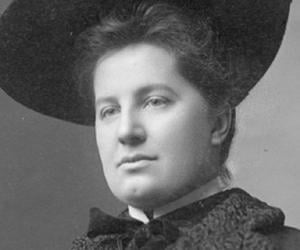By: Antonio M | Date Added:

Emily Murphy was a Canadian women’s rights activist and author who went on to become the first female magistrate in Canada and the British Empire. Well known for her contributions towards feminism in her nation, Emily Murphy was one among the “Valiant Five” or “Famous Five”—an activist group in Canada that included her along with other prominent activists such as Henrietta Muir Edwards, Irene Parlby, Louise McKinney and Nellie McClung. She is regarded as one of the few women who were at the forefront in repealing discriminatory legislation against women during her time. Emily Murphy was born into a liberal family which was largely connected to politics and law and her father encouraged the equal treatment of sons and daughters. She drew inspiration from her maternal grandfather who was a politician, and uncles who included a Supreme Court justice and senators. This upbringing helped her later in life in understanding and speaking about issues against women and children in public. One of her famous quotes states “Nothing ever happens by chance, everything is pushed from behind”. Emily Murphy was born on 14 March 1868 in Cookstown, Canada, to Isaac Ferguson and Emily Ferguson. She was the third child born to the couple and had two elder brothers named Thomas and Gowan. Emily’s father was a businessman. Emily Murphy attended the Bishop Strachan School, a private girl’s school in Toronto. Private formal education is said to have had a great role in shaping her thoughts and giving her a broad approach towards life. Born into a family with great influence in legislation and politics, Emily Murphy became a legal advisor and educator at a very early age. Her orientation was towards the empowerment of women and children. Between 1900 and 1906, Emily Murphy took up writing and involved herself in publishing her travel sketches under the pen name Janey Canunk. In 1907, she moved with her family to Edmonton in Alberta. Here she organized women groups and discussed various challenges related to gender inequality on a regular basis. When she became aware of the plight of a woman in Alberta who did not receive any land when her spouse sold their farm, Emily Murphy first led a campaign to protect property rights for married women. Her efforts paid off when in 1916 the Alberta legislature passed the Dower Act which allowed married women the rights to one-third of their husband’s property. This victory strengthened her public profile. In 1916, Emily Murphy along with other activists wanted to witness the trial proceedings of some women accused of prostitution. But, Murphy and other female activists were not allowed to witness the trial on the ground that it would be inappropriate of them to do so. SOURCES · https://www.thefamouspeople.com/profiles/emily-murphy-6652.php · https://www.thefamouspeople.com/womens-rights-activists.php · https://en.wikipedia.org/wiki/Emily_Murphy
Share your thoughts on this story with us. Your comments will not be made public.
Email
Copyright ©2016 - Design By Bureau Blank